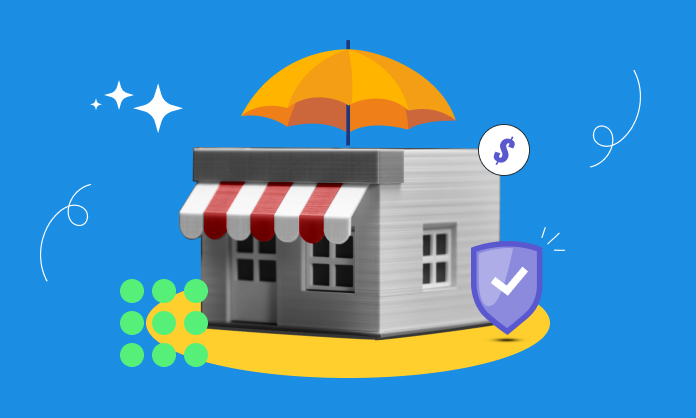What are the most important small business insurance requirements?
Starting a small business is a dream many people see. One has to juggle multiple responsibilities when running a small business. Which also includes safeguarding the business from potential risks.
That’s why small business insurance is a crucial part of setting up and running a small business. It’s not only a safety net for your small business but also the groundwork for your long-term investment in the small business.
In this article, we have explored the most important requirements for small business insurance. We have covered state regulations, issues regarding compliance, and key factors to consider when applying for insurance. So, without any delay, let’s start.
As a small business owner, you may have to consider a set of insurance plans. And the requirements may vary based on the type of business you are operating.
Types of Insurance Required for Small Businesses
Understanding the various types of insurance required for small businesses is crucial for compliance and protection. Here are the most common types:
Liability Insurance
Liability insurance for your business protects your business from personal damage or injury done to other people by the business. It helps your business take cover from legal costs and payouts in case your business is found liable for any harmful actions.
Types of Liability Insurance:
There are different types of liability insurance your business may require. Flowing are the three main types of liability insurance to look out for —
General Liability Insurance:
This is the most basic small business insurance to have. It covers your business from bodily injuries and property damage.
Professional Liability Insurance:
This is liability insurance that keeps your business protected from claims regarding negligence in professional services. It’s important to consider if your business offers any professional services to clients.
Product Liability Insurance:
This insurance is essential for small businesses that are manufacturing products. If defective products manufactured by your business affect your buyers, this insurance coverage comes in handy.
Sales, operations, and marketing hurdles aren’t the only things your business has to handle. There are other problems like facing devastating lawsuits. However, it’s possible to overcome those challenges with liability insurance and keep your business financially stable.
Property Insurance
When you have a small business with a store, inventory, and equipment you use for operations, property insurance is one of your small business insurance requirements. Property insurance keeps your business properties (building, equipment, and inventory) safe from any damage done by others.
Building Insurance:
Building insurance under property insurance is a crucial insurance to have. It safeguards your store or business building from disasters.
Equipment Insurance:
Use property insurance to safeguard your capital invested in business equipment.
Inventory:
Protect your stock against theft or other disaster-related issues.
Property insurance helps small businesses safeguard their assets from damage done by any theft, disaster, or a third party. It’s crucial to consider it as a part of your business’ safety net.
Workers’ Compensation Insurance
If your business is employing workers, then this is an insurance to consider for both the business and the employee’s safety. Employees who become ill due to the job or get injured can claim their medical expenses and lost wages under worker’s compensation insurance.
It’s not only important among the small business insurance requirements but also a mandatory one in some states. If you have workers in your business, you’ll need to have worker’s compensation.
State Regulations & Compliances
When considering small business insurance, it’s critical to navigate state regulations to maintain essential compliance. In every state, there are some insurance obligations for small businesses. It may vary depending on the size, location, and industry type of a business.
So, to stay compliant with both the state and federal laws, consider these parameters when checking your small business insurance requirements —
State-by-State Insurance Requirements
In many states, small businesses must have general liability and worker’s compensation insurance. The states have full authority over which insurance obligations must be made mandatory for small businesses. The guideline for the same is available on the SBA website.
Compliance and Penalties
When considering any insurance for your small business, make sure to check the compliance and penalties associated with your business. In specific states of the USA, failing to comply with the insurance can lead to penalties. It may often lead to the closure of a business. So, it’s important to get the required insurance and keep proof to avoid negative consequences.
Factors to Consider When Selecting Insurance Policies
Here are some factors that determine the type of insurance your small business must have —
Business Type and Industry
When considering your small business insurance requirements, take note of your industry and the business types. Both are detrimental factors behind the insurance you must pay for.
For example, if your business is in the healthcare sector, you may need to spend money on professional liability coverage. This is because this type of business demands such insurance.
On the other hand, if your business is in the construction industry, you’ll have to spend on equipment coverage or workers’ compensation. So, before you decide, ensure to understand the nature of your business and how you operate.
Business Size and Revenue
The size of a business and its revenue also dominate the insurance amount and the premium that needs to be paid. Larger-sized businesses will always face higher premiums with
The size of your business can affect both your insurance requirements and premiums. Larger businesses typically face higher premiums but may also have more resources to manage these costs. Strategies like increasing deductibles can help manage expenses effectively. When a business is large, increasing deductibles can help manage your expenses effectively.
Locations & Regional Risks
Another important factor to consider when choosing insurance for your small business is the location of the business. If your business operates in a flood-prone area, then you have to consider insurance related to floods.
On the other hand, small businesses in urban areas fall prey to theft and crimes. So, anti-theft and cybersecurity-related insurances are a must.
Consider the Level of Vulnerability
The insurance coverage is supposed to help your business stay protected from unexpected damage. So, start by analyzing the level of vulnerability your business has and choose insurance accordingly.
Some insurance providers offer coverage for a specific amount (for example, $50000). But if your business has equipment costs above that range, then the coverage amount isn’t enough. So, first, assess the vulnerability of an asset and choose insurance accordingly.
Whether You Work Out of Your Home
Do you work outside of your home? Many small cleaning service owners would often consider running their business from their homes. If your home is the place of your business, then you must buy a HomeHQSM insurance policy.
This consideration applies to both homeowners and renters. It’s important because you can recover from any damage done to your house with the homeowner’s insurance. But the homeowner’s insurance won’t cover the damage done to your business equipment.
Additional Insurance for Small Businesses
Beyond the essential insurances, there are other insurances your business can benefit from. Following are some good examples —
Cyber Insurance
Small businesses with an online presence must invest in cyber insurance. With increasing levels of digital threat and cyber security issues, it’s important for small businesses to strengthen their security to safeguard data.
Business Interruption Insurance
This type of insurance helps cover income that’s lost during times when your business cannot operate because of events like natural disasters or fires. It’s an important insurance to consider for small businesses that rely on foot traffic and have a storefront.
Umbrella Insurance
To add an extra layer of insurance to your business, you can go beyond standard insurance policies and have umbrella insurance. This is especially beneficial for businesses engaged in high-risk activities where additional coverage may be necessary.
Conclusion
It’s important to opt for different insurance packages for your business to cover itself from unforeseen damage and disasters. You need to have the right policies in place for your small business. But when choosing an insurance, ensure to make it compliant to the state regulations and compliance.
If you already have insurance coverage, you can evaluate them as per your current requirements and adjust them as per your needs. It would help to consult with an experienced insurance broker to get valuable insights tailored to your business. Hopefully, this article was helpful.
For More Business Related Articles Click Below!!!




Leave A Comment